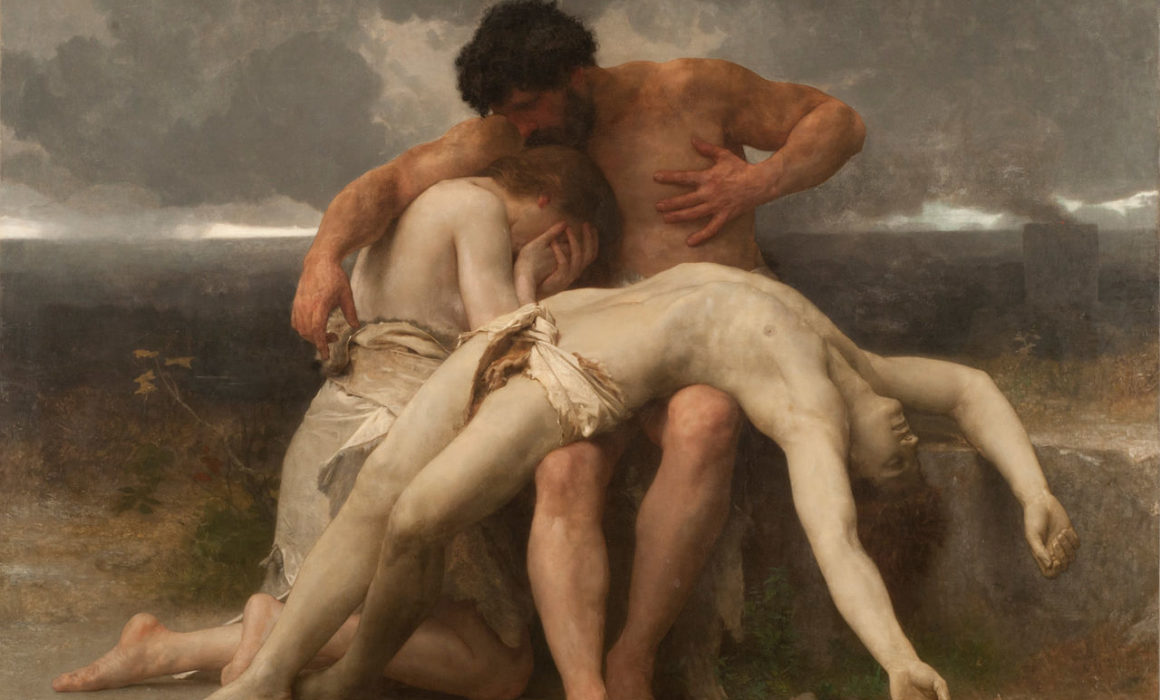Sermon for the Fifth Vespers of Lent
‘The voice of your brother’s blood is crying to me from the ground.’
+INJ+
The child Cain is born. The first of those who would never know paradise. The first of those who knew only the fall; knew only sin and death.
His family history was simple and short: it was nothing but rebellion. It was nothing but the rejection of God. Both his parents had committed the Original Sin, and because of this, he was to wander the wastes of the world, himself born of sin, himself a sinner.
After the curses pronounced over Adam and Eve in the Fall, God had spoken no word. It would seem that God had forsaken those whom He once walked with in the cool of the evening in the garden. God was angry, it would seem. God had abandoned mankind, for he repented of having made them.
Yet Cain could not bear such forsakenness. He would not have it that man should be alone in this vast and dying world. So he does what no one has ever done before. He imagines what none has ever imagined before. He takes of his grain, and raises his hands unto the heavens, and offers the work of his hands to the Lord. This is the birth of sacrifice.
Sacrifice is the most simple expression of faith. It is the confession that all one has, one has only from God, and that it is proper that what belongs to God should be returned to him, for every loan is repaid. And life itself is little else than a loan.
Adam and Eve sought to be like God, knowing good and evil. Cain sought the exact opposite, to be like a creature, knowing only dependency on the Lord of all. Knowing only humility, if not humiliation. A confession of sin, for all sin is pride.
Likewise, his brother Abel, a shepherd of sheep, following the example of his brother, offered forth a lamb, making the same confession. For a broken and contrite heart the Lord will not despise.
The Lord regards the sacrifice of Abel. The Sacrifice of the lamb. He does not regard the sacrifice of Cain, that of grain. He does not reject Cain’s offering. He does not reject Cain. But He looks upon the slaughtered lamb. How could the Lord not? For He looks upon the icon of the fate of His beloved son, in whom he is well pleased, an image of blood and of suffering. Of innocence turned to agony. How could the Lord not look?
So Cain was very angry, and his face fell, for he had not offered that which would wrench the heart of God. Yet the Lord comforts him: ‘Why are you angry, and why has your face fallen? If you do well, will you not be accepted? Sin is crouching at the door. Its desire is contrary to you, but you must rule over it.’
Now Cain resolved to do well. To offer a better sacrifice. So he spoke to Abel his brother. And when they were in the field, Cain rose up against his brother Abel and killed him. For what is a greater sacrifice, greater than wheat or beasts, but a son of man?
Most assume that when Cain spoke to Abel, he whispered some form of deceit, to trick him and get revenge upon his brother out of envy. Yet that is nowhere in the text. Rather, they simply spoke, and Abel went willingly into the field to be killed, as a lamb to the slaughter, for the son of man lays down his life of his own accord.
But the Lord hears the blood of Abel, crying from the ground. He descends to speak to Cain, and curses him for having killed his brother. Yet this is not because God despised the sacrifice of a son of man. It is because Cain’s sacrifice was of the wrong man. Even as God would not receive the sacrifice of Isaac by the blade of Abraham, so would he not receive the pain of Abel, for he will not receive the blood of any sinner, for the sacrifice that God requires is blameless, and without spot.
Cain is accursed, and cannot bear the burden of his
iniquity, for he knows that he is a shedder of blood, and thus his blood too
shall be shed. ‘I shall be a fugitive and
a wanderer on the earth, and whoever finds me will kill me.’
Yet the Lord is not angry. Again, he comforts the murderer Cain. ‘Not so! If anyone kills Cain, vengeance
shall be taken on him sevenfold.’ An
the Lord put a mark on Cain, as He puts a mark on all sinners who come to
Him in water, and in contrition, that they might not die eternally.
This seems odd to us; for we wonder why God would comfort a killer. But really
it is no mystery, for God tells us why He has had mercy on Cain, for it is
written: ‘The voice of your brother’s
blood is crying to me from the ground.’
We hateful people assume that the blood of Abel demands justice and revenge,
for we who are filled with indignation demand such against our neighbors daily.
But perhaps the blood of Abel pleads what every true sacrifice pleads: ‘Father, forgive him.’
A time is coming, when a Son of Man shall become the Lamb of God, and be
lifted up, and scourged, and tortured, and crucified, that His flesh might
become for us our daily bread, and that His blood might speak to the Father,
‘Speaking a better word than the blood of
Abel.’
+INJ+
Preached by Pastor Fields
Sermon Texts: Genesis 4:1-16; Psalm 51.



